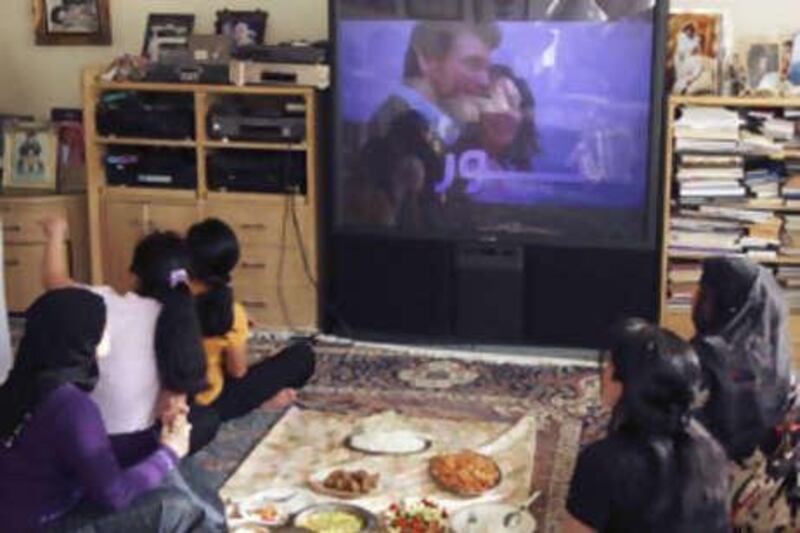In the West, the summer television season is generally synonymous with slim pickings and reruns, but in the Gulf, networks follow a different script, premiering new shows and ramping up productions and acquisitions ahead of the bumper Ramadan season. "TV is different here. The lifestyle of people is different. Not everyone leaves the region anymore," said Mazen Hayek, the marketing, PR and commercial group director at the free-to-air, pan-Arab MBC network.
The network, based in Dubai, launched a new movie channel with Farsi subtitles called MBC Persia early last month. It also opted to air two of its runaway successes - the Arabic-dubbed Turkish soap operas, The Lost Years and Noor - throughout the summer months. Both series, which started in May, wrap up later this month. The pan-Arab pay TV network, Showtime Arabia, also increased its offerings during the summer. The network based in Dubai debuted the new seasons of hit US sitcoms including 30 Rock, Desperate Housewives and Grey's Anatomy during the summer months. The English football Premier League's new season also begins in August. "It's a very, very, very active season for us," Mr Hayek said.
But it was not always this way. Azhar Malik, the vice president of marketing at Showtime Arabia, said that five years ago, the humidity and heat would drive many people out of the region, and subsequently, advertising sales would "drop dramatically" in the summer. Not so these days, Mr Malik said. More people are opting to remain in the region and consequently, rather than cool off during this period, viewing options at television networks have heated up.
Karim Sarkis, the executive director of broadcast at Abu Dhabi TV, said that advertising agencies had not fully grasped that the summer television season could be a lucrative proposition because there was still a sizeable viewing population in the sun-soaked Gulf. "It's the advertising agencies that went on holiday, rather than the population," he said, adding advertising agencies are still "very reluctant" to spend money in the summer season, "although television networks have decided that they're not going to stop competing during the summer".
"Advertisers haven't come on board, even though ratings show that the dip in audiences isn't high," he added. Mr Hayek said that on his network, television advertising spending remained consistent throughout the period, "until you get to Ramadan, when things go up with a huge multiplier effect". The Holy Month of Ramadan, which begins on Sept 3, is the highest ratings period of the year. The pre-Ramadan period at networks across the region is abuzz with activity, as channels mobilise their resources and vie to either produce or acquire the best in family entertainment during this peak viewing season.
The intense competition means that networks across the Middle East keep their Ramadan offerings under wraps until a day or so before the start of the holy month. Mr Hayek said that in the Gulf's biggest market, Saudi Arabia, the average television viewing period increased from four hours a day to six or seven during Ramadan, and advertising spending also went up. "Ramadan accounts for 25 to 30 per cent of total ad spend during the year," he said.
Almost all of the ad spots during Ramadan on MBC were booked. The network - which usually broadcasts about 12 minutes of advertisements per hour and a further three minutes per hour of ads promoting its many channels - said that the time allotted to ads per hour increased slightly during Ramadan. But Mr Sarkis said that industry-wide, the time allotted to advertising per hour in Ramadan "practically doubles", a strategy that was not, in his opinion, the best approach.
"The time given to ads should stay the same, but the price for the same 30-second spot should go up," he said. Although Mr Sarkis acknowledged that ad prices did go up during Ramadan, he bemoaned the fact that "there are no regulations for the amount of advertisements per hour". According to Mr Malik, advertising rates also increase anywhere from 50 to 100 per cent across the industry during Ramadan, but the jump is not as significant as it sounds, given that production and acquisition costs also increase during the same period.
"It's the peak viewing period," he said, "and it's the peak buying period as well." @Email:rabouzeid@thenational.ae





